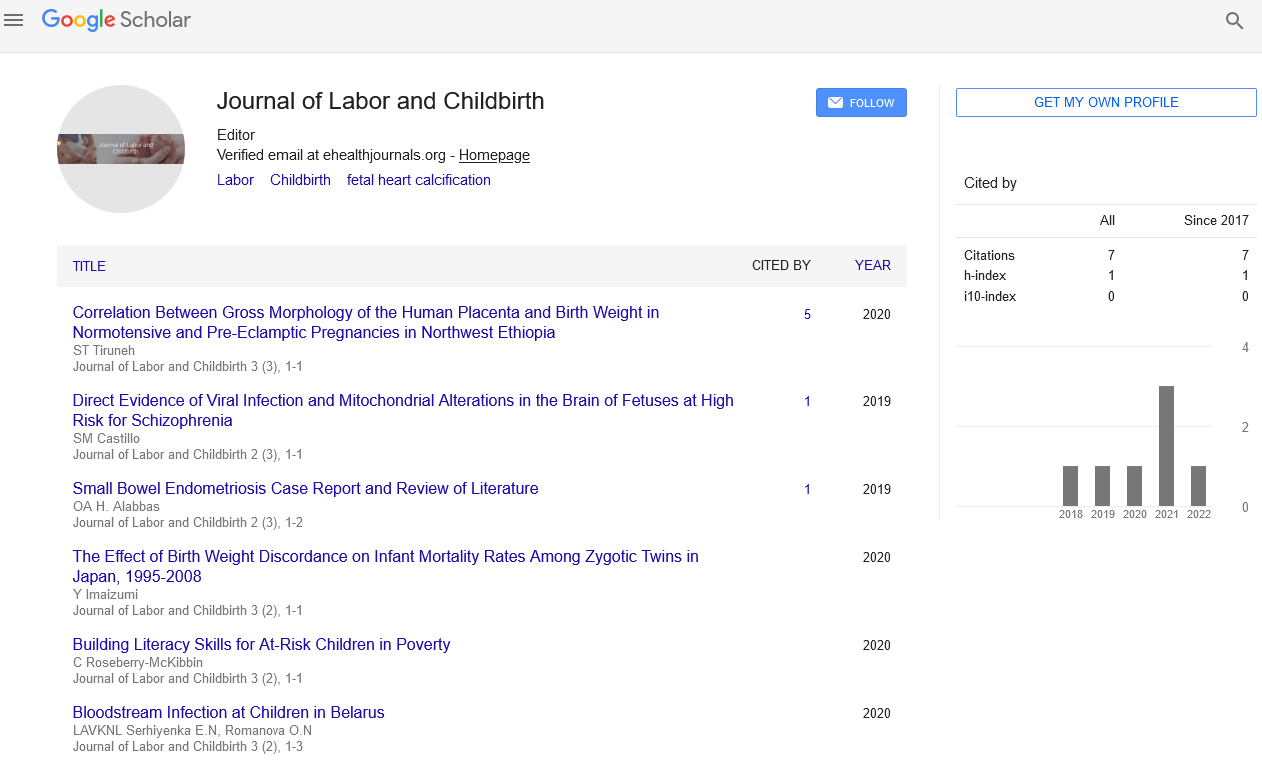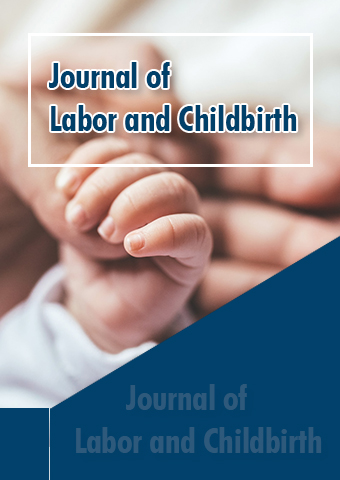Perspective - Journal of Labor and Childbirth (2024) Volume 7, Issue 5
Breastfeeding Initiation: A Critical Element in Infant Health and Development
- Corresponding Author:
- Iker Malaina
Department of Child Welfare,
Saavan University,
Bilbao,
Spain
E-mail: iker.malaina123@ehu.eus
Received: 28-Sep-2024, Manuscript No. jlcb-24-149133; Editor assigned: 03-Oct-2024, PreQC No. jlcb-24-149133 (PQ); Reviewed: 17- Oct-2024, QC No. jlcb-24-149133; Revised: 21-Oct-2024, Manuscript No. jlcb-24-149133 (R); Published: 28-Oct-2024, DOI: 10.37532/jlcb.2024.7(5).276-277
Introduction
Breastfeeding initiation is a pivotal moment in the journey of infant health and maternal well-being. As one of the earliest interactions between mother and child, it has significant implications for both short-term and longterm outcomes. This article explores the importance of breastfeeding initiation, the factors influencing it and strategies to support successful breastfeeding.
Description
The importance of breastfeeding initiation
Breastfeeding is universally recognized as the optimal method of infant feeding, providing essential nutrients, antibodies, and emotional bonding that formula cannot replicate. The World Health Organization (WHO) and numerous health bodies advocate for exclusive breastfeeding for the first six months of life, highlighting its role in reducing infant mortality and morbidity.
Early initiation of breastfeeding-within the first hour of birth is particularly critical. This practice helps stimulate the mother’s milk production and ensures that the infant receives colostrum, the nutrient-rich first milk that boosts the baby’s immune system. Early skin-to-skin contact further enhances this process, facilitating the infant’s ability to latch effectively and promoting bonding between mother and child.
Factors influencing breastfeeding initiation
Several factors affect the successful initiation of breastfeeding, ranging from medical conditions to social and psychological influences. Understanding these factors can help address barriers and improve breastfeeding rates.
Maternal health and support: Maternal health plays a crucial role in breastfeeding initiation. Women who have had complications during delivery, such as cesarean sections, may face difficulties in starting breastfeeding. Additionally, maternal conditions such as diabetes or hypertension can affect milk production and the ability to breastfeed. Support from healthcare providers and family members is vital in these situations.
Healthcare system practices: Hospital practices significantly impact breastfeeding initiation. The Baby-Friendly Hospital Initiative (BFHI) promotes practices that support breastfeeding, such as immediate skin-to-skin contact and avoiding unnecessary supplementation with formula. Hospitals that implement these practices often see higher rates of successful breastfeeding initiation.
Socioeconomic factors: Socioeconomic status can influence breastfeeding initiation. Women with lower socioeconomic status may face challenges such as lack of access to lactation support, fewer resources for breastfeeding education or pressures to return to work early. Addressing these disparities through targeted support programs can help bridge the gap.
Cultural beliefs and norms: Cultural beliefs and norms around breastfeeding vary widely. In some cultures, breastfeeding is strongly encouraged and supported, while in others, there may be less emphasis on its importance. Educating communities about the benefits of breastfeeding and addressing cultural misconceptions can improve initiation rates.
Psychological factors: Mental health plays a role in breastfeeding initiation.
Women experiencing stress, anxiety or depression may find it more challenging to start breastfeeding. Providing mental health support and counseling can help address these barriers and promote successful breastfeeding.
Strategies to support breastfeeding initiation
To enhance breastfeeding initiation rates, various strategies can be employed at the individual, institutional and policy levels.
Education and counseling: Providing education and counseling to expectant mothers about the benefits and techniques of breastfeeding is essential. Prenatal education classes and one-onone counseling can equip mothers with the knowledge and confidence needed to initiate breastfeeding successfully.
Immediate skin-to-skin contact: Promoting immediate skin-to-skin contact after birth supports the infant’s natural instinct to breastfeed and helps regulate the baby’s body temperature and heart rate. This practice also encourages early latching and milk production.
Lactation support: Access to lactation consultants and support groups can significantly impact breastfeeding success. These professionals provide guidance on proper latching techniques, address concerns and offer emotional support, helping mothers overcome challenges.
Supportive hospital policies: Implementing and adhering to baby-friendly hospital initiative guidelines can foster an environment that supports breastfeeding initiation.
Hospitals should ensure that staff are trained to assist with breastfeeding and that unnecessary formula supplementation is avoided.
Community support programs: Communitybased programs that provide resources and support to breastfeeding mothers can enhance initiation rates. Programs such as home visits by lactation consultants, breastfeeding support groups and community education initiatives can offer practical assistance and encouragement.
Workplace policies: Supporting breastfeeding mothers in the workplace is crucial for sustaining breastfeeding practices. Policies such as flexible work hours, lactation breaks and designated breastfeeding areas can help mothers continue breastfeeding after returning to work.
Conclusion
Breastfeeding initiation is a fundamental aspect of infant health and development, offering numerous benefits for both mother and child. Addressing the factors that influence breastfeeding initiation and implementing strategies to support it can lead to improved breastfeeding rates and overall better health outcomes. By prioritizing education, support and supportive practices, we can help ensure that every mother and baby have the opportunity to experience the benefits of breastfeeding from the very beginning.

